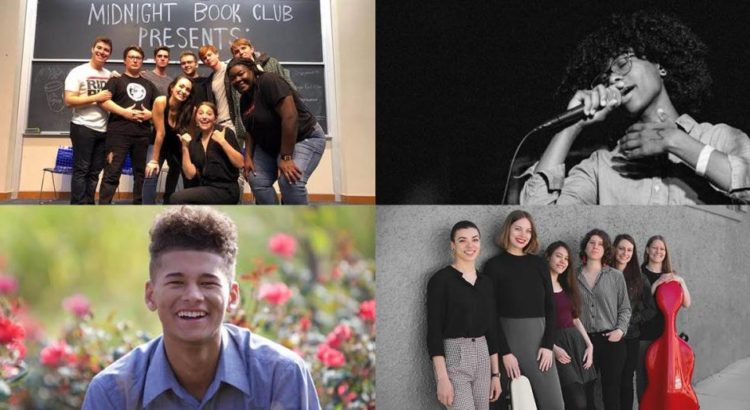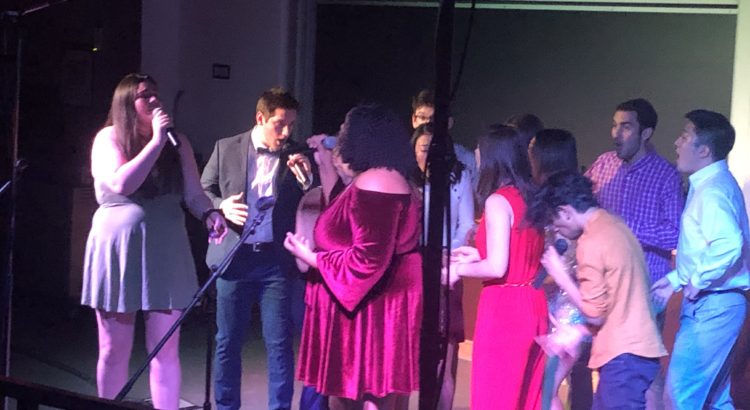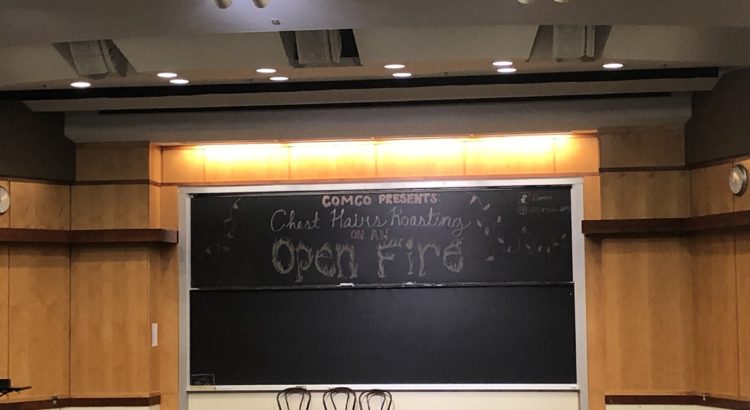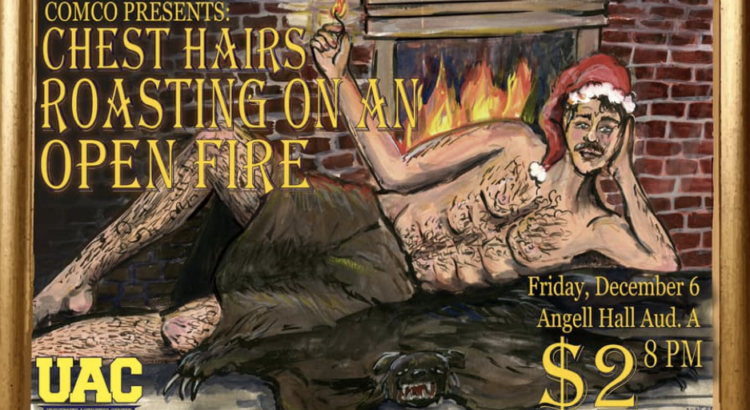This last Saturday, 58 Greene’s diverse ensemble delivered Greenie Night Live, an amateur yet earnest a cappella performance with a unique set list that ranged from R&B to Alternative Indie. To start off the night, University of Michigan dance group Encore performed a dynamic set of choreographed dances to some tastefully layered tracks. Seeing as how this event was held in a lecture room of East Hall, having the space of a larger stage would have perhaps served the quality of this dance performance well.
The MC’s of this event tried to fill in the show’s gaps with repartee that most certainly had potential to be funny, yet often fell flat from a seeming unpreparedness or lack of chemistry.
I go to all my events with hopes of being blown away. All things considered, while 58 Greene has some great sound and even greater potential, the unfortunate acoustics of the lecture hall accompanied by a muddled sound-mixing often made the lead vocals feel rather lost amidst the remaining back-up members. Alongside this, a number of arrangements often felt rather imbalanced. I was really excited to learn that Joji’s Slow Dancing in the Dark was being performed, and while there was a commendable presence of supporting voices in the ensemble, the leading soloist’s painful belting and flat delivery made it rather difficult to sit through.
On an extremely positive note, however, I found myself blown away by the smooth and sultry timbre of leading vocalist Teddi Reynolds in an arrangement of Jazmine Sullivan’s 2008 hit, Bust Your Windows. This was undoubtably the highpoint of the event as a whole, due not only to the killer vocalist, but also the well-synchronized supporting ensemble. This piece demonstrated the absolute potential that 58 Greene has when a strong vocalist is leading, which many of the other pieces lacked.
Ultimately, my conclusion is that a great number of the talented female ensemble members were often let down by a lackluster male foundation, often noticeable in the bass parts, and most certainly self-evident in the outperformance of the male soloists by the quality female soloists. I’m willing to reason that Greenie Night Live may simply have been an off-night for certain members of 58 Greene; however, since this was a ticketed event, I can only afford so much generosity in my evaluation of this amateur ensemble’s quality. Considering the strengths and the definite potential of 58 Greene, raising the expected standard for greater vocal talent and proficiency in leading vocalists could really carry this ensemble far.









